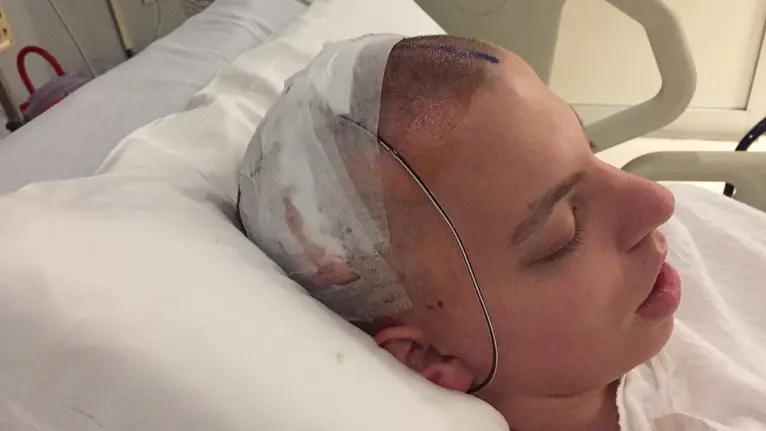
Nutrition and Brain Injury Recovery: Foods That Boost Brain Healing
When someone experiences a traumatic blow to the head, it can lead to lasting effects on memory, cognition, and overall brain function. The process of Brain Injury Recovery is complex and requires more than just medical attention—it demands the right nutrition, rest, and mental support. Food plays a vital role in this recovery journey by providing essential nutrients that help repair brain cells, reduce inflammation, and support overall brain health. Understanding how specific foods and nutrients contribute to healing can make a significant difference in long-term outcomes.
The Crucial Role of Nutrition in Brain Healing
The human brain is one of the most energy-demanding organs in the body, consuming around 20% of daily caloric intake. After a brain injury, its demand for nutrients rises even higher. The cells need additional support to repair damaged tissues, restore connections, and regulate neurochemical balance.
A diet rich in antioxidants, omega-3 fatty acids, and vitamins can significantly accelerate recovery. Nutrients act as the body’s natural medicine—they help reduce oxidative stress, fight inflammation, and promote the growth of new neural pathways. Essentially, good nutrition helps the brain rebuild itself from within.
Connecting Nutrition and Overall Wellness
Nutrition doesn’t only affect physical recovery; it’s also central to Health and wellness in a broader sense. When the body is nourished properly, it functions more efficiently—enhancing mood, improving focus, and supporting emotional stability. For individuals recovering from brain injuries, maintaining balanced nutrition is a holistic way to promote both mental and physical healing.
The right foods can help reduce fatigue, stabilize blood sugar levels, and enhance the brain’s capacity to produce neurotransmitters like serotonin and dopamine—both essential for mood regulation and motivation.
Key Nutrients for Brain Injury Recovery
Several nutrients stand out when it comes to repairing the brain and improving cognitive function after an injury. Below are some of the most important ones and how they contribute to the healing process.
1. Omega-3 Fatty Acids
Omega-3s, found primarily in fatty fish like salmon, mackerel, and sardines, are the cornerstone of brain recovery. These essential fats help rebuild cell membranes and support neuroplasticity—the brain’s ability to adapt and form new connections.
Studies have shown that omega-3s can reduce inflammation in brain tissue and improve outcomes after traumatic brain injury (TBI). For vegetarians, chia seeds, flaxseeds, and walnuts are excellent plant-based alternatives.
2. Antioxidants
After a brain injury, oxidative stress can cause further damage to brain cells. Antioxidants neutralize free radicals and protect the brain from this damage. Foods rich in antioxidants—such as blueberries, strawberries, spinach, and kale—help shield neurons from deterioration.
Vitamin C and E are two key antioxidants that should be included in a recovery diet. They work synergistically to support brain health and reduce inflammation.
3. Protein and Amino Acids
Protein plays an important role in repairing damaged tissues, including neurons. Amino acids, the building blocks of protein, support the production of neurotransmitters that regulate communication between brain cells.
Good protein sources include lean meats, eggs, beans, tofu, and lentils. Consistent protein intake throughout the day helps sustain energy and keeps the brain functioning at optimal levels.
4. B Vitamins
B vitamins—especially B6, B12, and folate—are crucial for energy metabolism and nerve repair. They help the body produce red blood cells, which carry oxygen to the brain. Deficiencies in these vitamins can lead to cognitive fatigue and slower recovery.
Leafy greens, whole grains, and eggs are excellent sources of B vitamins. Supplementation may also be beneficial under medical supervision.
5. Magnesium and Zinc
Magnesium helps regulate nerve signals and protect the brain from excitotoxicity—a condition where neurons become overstimulated and die. Zinc supports DNA repair and plays a key role in the production of brain-derived neurotrophic factor (BDNF), which promotes neuron growth.
Incorporating magnesium-rich foods like avocados, almonds, and dark chocolate can help stabilize nerve function. Zinc can be found in shellfish, pumpkin seeds, and chickpeas.
Foods That Support Brain Healing
Beyond nutrients, specific foods have been scientifically linked to brain healing. These foods not only deliver essential vitamins and minerals but also contain compounds that directly enhance brain function.
1. Fatty Fish
Fatty fish like salmon, trout, and sardines are loaded with DHA (docosahexaenoic acid), a type of omega-3 fatty acid critical for brain repair. DHA helps restore the protective sheath around neurons, ensuring smoother communication between brain cells.
2. Blueberries
Blueberries are among the most powerful brain foods available. They’re rich in anthocyanins, compounds that reduce inflammation and protect brain cells from further damage. Regular consumption of blueberries has been shown to improve memory and coordination after injury.
3. Leafy Greens
Spinach, kale, and Swiss chard contain high levels of antioxidants and folate, both of which promote cell regeneration. They also help in detoxifying the body and supporting overall brain resilience.
4. Eggs
Eggs are packed with choline, an essential nutrient that helps produce acetylcholine—a neurotransmitter vital for memory and learning. Choline-rich diets are particularly beneficial for cognitive repair and mental sharpness.
5. Nuts and Seeds
Nuts and seeds provide healthy fats, vitamin E, and magnesium, all of which support the healing process. Walnuts, in particular, resemble the shape of a brain—and for good reason. They’re one of the best plant-based foods for boosting brain health.
6. Turmeric
Turmeric contains curcumin, a potent anti-inflammatory compound that enhances brain-derived neurotrophic factor (BDNF). It aids in the regeneration of neurons and protects against future cognitive decline. Adding turmeric to meals or consuming it as tea can be a simple yet effective addition to a recovery diet.
7. Dark Chocolate
Dark chocolate (at least 70% cocoa) is rich in flavonoids, antioxidants that improve blood flow to the brain and enhance memory. A small portion daily can uplift mood and stimulate mental alertness.
Hydration and Brain Recovery
While nutrients are crucial, hydration plays an equally vital role in brain recovery. The brain is nearly 75% water, and dehydration can exacerbate fatigue, confusion, and headaches—common symptoms after a brain injury.
Drinking adequate water helps transport nutrients throughout the body, flush out toxins, and maintain optimal brain function. In addition to water, coconut water and herbal teas can provide electrolytes that support hydration.
The Gut-Brain Connection
The gut and brain are closely linked through the vagus nerve—a connection known as the gut-brain axis. After a brain injury, the balance of gut bacteria can be disrupted, leading to inflammation and mood disturbances.
Probiotic-rich foods like yogurt, kefir, sauerkraut, and kimchi help restore healthy gut flora. A balanced gut microbiome supports brain healing by reducing inflammation and improving nutrient absorption.
Lifestyle Tips to Complement Nutrition
While nutrition is a cornerstone of recovery, lifestyle habits also influence how quickly and effectively the brain heals.
1. Prioritize Sleep
During sleep, the brain clears out toxins and consolidates new memories. Aim for at least 7–9 hours of restful sleep each night to support regeneration.
2. Manage Stress
Chronic stress releases cortisol, a hormone that can slow down healing. Techniques like meditation, deep breathing, and gentle yoga can help calm the mind and promote neurological balance.
3. Engage in Cognitive Exercises
Puzzles, reading, and memory games stimulate neuroplasticity. Consistent mental activity encourages the brain to form new neural pathways, aiding recovery.
4. Physical Activity
Low-impact exercise, such as walking or swimming, increases blood flow to the brain and enhances oxygen delivery. Always consult a healthcare professional before beginning any physical regimen post-injury.
Supplements That May Support Recovery
In some cases, dietary supplements can provide an additional boost to the recovery process.
Fish Oil: High in omega-3s for brain cell repair.
Curcumin: Reduces inflammation and supports neural growth.
Vitamin D: Enhances immune function and brain health.
CoQ10: Supports mitochondrial function and energy production.
Before taking any supplements, it’s essential to consult a healthcare provider to ensure they don’t interfere with medications or recovery protocols.
The Importance of Consistency
Recovery from brain injury isn’t a one-time event—it’s a continuous process that demands consistency and patience. Nutritional choices made daily can determine the quality and speed of healing.
Building a routine around nutrient-dense meals, proper hydration, and stress management ensures that the brain receives steady support. Over time, these efforts translate into improved focus, better memory, and greater emotional stability.
Final Thoughts
Nutrition plays a transformative role in the journey of healing the brain. By incorporating foods rich in omega-3s, antioxidants, and essential vitamins, the body can naturally accelerate the recovery process. Whether it’s through a hearty salmon dinner, a smoothie packed with blueberries and spinach, or a sprinkle of turmeric in soup, every nutrient helps rebuild what was lost.
A well-balanced diet, combined with rest, mental activity, and positive lifestyle habits, creates a strong foundation for lasting brain health. The road to recovery may be long, but with the right nutrition, each meal becomes a step toward a healthier, sharper, and stronger mind.
Leave a Reply
Please login to post a comment.










0 Comments